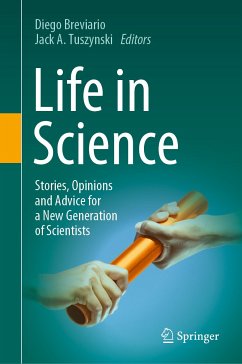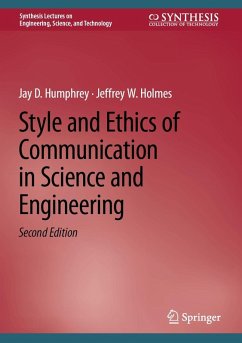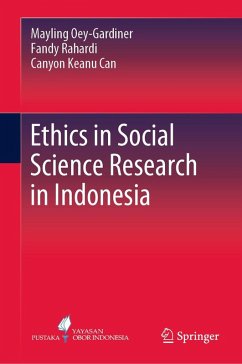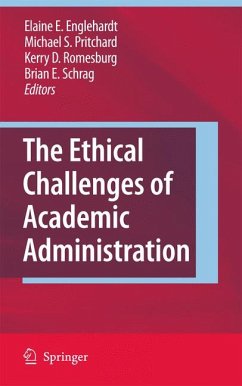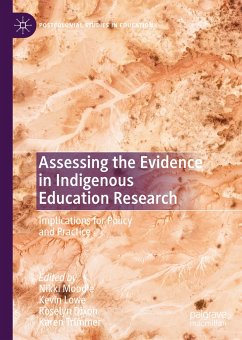
Reconstructing Research Integrity (eBook, PDF)
Beyond Denial
Versandkostenfrei!
Sofort per Download lieferbar
72,95 €
inkl. MwSt.
Weitere Ausgaben:

PAYBACK Punkte
36 °P sammeln!
This book exposes significant threats to research integrity and identifies policies and practices that can reverse these trends. It is focused on human research and US policy. Recent assessments have shown inadequacies in institutions, policies, and practices that seriously compromise ethics. The presumed self-regulatory nature of the scientific endeavor has been exposed to have allowed unabated areas of poor-quality science, an incomplete and inaccessible scientific record, conflicts of interest, differing notions of accountability, virtually no evidence base to direct research integrity poli...
This book exposes significant threats to research integrity and identifies policies and practices that can reverse these trends. It is focused on human research and US policy. Recent assessments have shown inadequacies in institutions, policies, and practices that seriously compromise ethics. The presumed self-regulatory nature of the scientific endeavor has been exposed to have allowed unabated areas of poor-quality science, an incomplete and inaccessible scientific record, conflicts of interest, differing notions of accountability, virtually no evidence base to direct research integrity policy, and a growing sense of alienation, moral injury and even revolt among scientists. Reconstructing Research Integrity aims to capture ways of vigorously moving toward scientific and ethical rigor, including self-correction and emerging or already-successful initiatives.
The book begins with analysis of the full system of institutions, policies, and practices involved in production, dissemination, and application of research, including an examination of the blind spots in research ethics ideology, policy, and practice. The book then identifies policies and practices that can reverse harmful ethical trends, such as strengthening Responsible Conduct of Research (RCR) training and improving self-regulation in the scientific community. Finally, the book discusses the constant evolution of research ethics and integrity, which is illustrated by emerging research fields like gene editing and data science.
This book will be of interest to all research administrators in academic, commercial and government positions; to policy advisors at the National Science Foundation and at the National Academies of Science, Engineering, and Medicine; to graduate students in research ethics; to advanced bioethics education programs across the globe; and to researchers and consultants in ELSI (ethical, legal, and social implications) programs.
The book begins with analysis of the full system of institutions, policies, and practices involved in production, dissemination, and application of research, including an examination of the blind spots in research ethics ideology, policy, and practice. The book then identifies policies and practices that can reverse harmful ethical trends, such as strengthening Responsible Conduct of Research (RCR) training and improving self-regulation in the scientific community. Finally, the book discusses the constant evolution of research ethics and integrity, which is illustrated by emerging research fields like gene editing and data science.
This book will be of interest to all research administrators in academic, commercial and government positions; to policy advisors at the National Science Foundation and at the National Academies of Science, Engineering, and Medicine; to graduate students in research ethics; to advanced bioethics education programs across the globe; and to researchers and consultants in ELSI (ethical, legal, and social implications) programs.
Dieser Download kann aus rechtlichen Gründen nur mit Rechnungsadresse in A, B, BG, CY, CZ, D, DK, EW, E, FIN, F, GR, HR, H, IRL, I, LT, L, LR, M, NL, PL, P, R, S, SLO, SK ausgeliefert werden.





